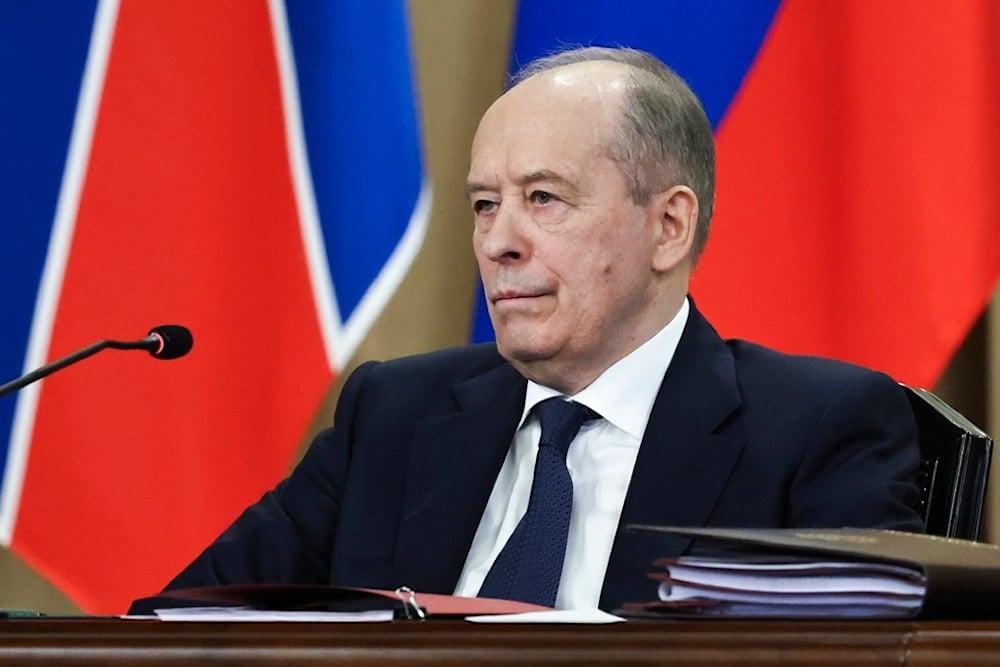Russia's FSB chief: Western policy fueling global Islamic radicalism
Alexander Bortnikov warns that Western geopolitical efforts and neo-colonial policies are increasing the threat of ISIS and endangering CIS security.
-

Federal Security Service (FSB) director Alexander Bortnikov attends a meeting of the Federal Security Service (FSB) board, in Moscow, Russia, on Thursday, Feb. 27, 2025 (Sputnik, Kremlin Pool Photo via AP)
Shifts in power in Syria, the ongoing war on the Gaza Strip, and persistent pressure on Iran are collectively intensifying the global spread of Islamic radicalism, warned Alexander Bortnikov, head of the Russian Federal Security Service (FSB).
He added that the escalating situation in Libya is also contributing to this expansion.
Against this backdrop, Bortnikov highlighted an increased operational tempo for ISIS (the Islamic State, also known as IS) and its affiliates in Afghanistan.
He also warned of emerging risks regarding the Islamic State's growing influence within Syria itself.
Bortnikov made these remarks in a welcoming address to participants of the 18th meeting of department chiefs from CIS security agencies responsible for counterterrorism efforts.
The meeting is taking place in Moscow, coinciding with the 25th anniversary of the CIS Anti-Terrorism Center (ATC).
Read more: Putin accuses Ukraine of terror tactics, undermining peace talks
Anglo-Saxon powers responsible for instability
The FSB chief also pointed out that rising instability in the Middle East, Africa, the Afghan-Pakistani zone, and Central Asia poses significant threats to the security of the Commonwealth of Independent States (CIS).
He attributed this primarily to "the West’s intensified push to retain its geopolitical status, including the use of terrorist groups, and its ongoing neo-colonial policy," emphasizing that "the leading role in this belongs to the Anglo-Saxon powers."
International terrorist organizations using militants released from Syrian jails
According to Bortnikov, leaders of international terrorist organizations are relying on militants active in Afghanistan and Syria, as well as on terrorists of Russian, Central Asian, and South Caucasus origin who have been released from Syrian jails.
These individuals, he noted, are "already openly announcing their aggressive plans with regard to their countries of origin."
Read more: Russia's Putin pushes for tighter global controls on bio-weapons

 2 Min Read
2 Min Read










